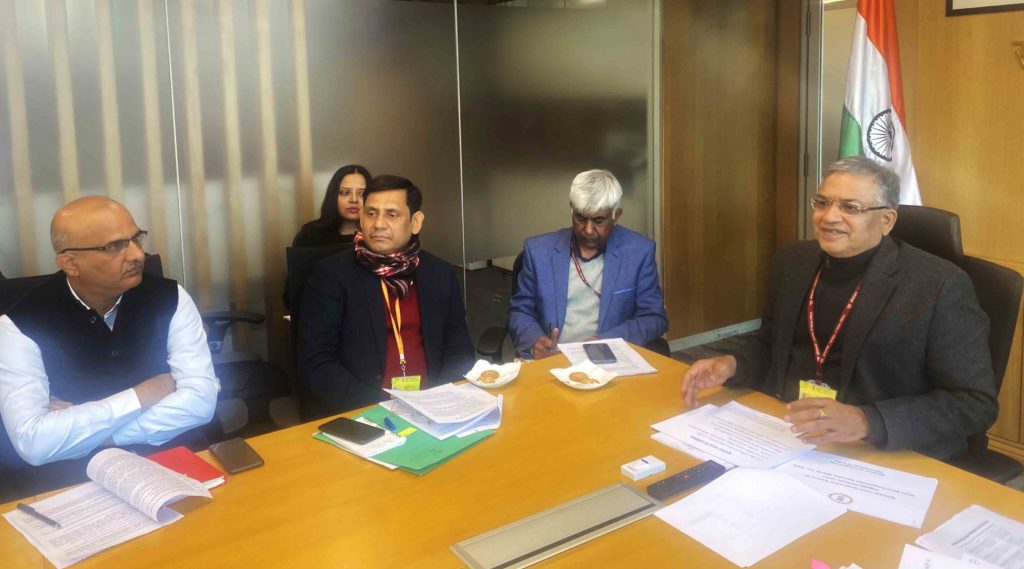Explaining the benefits of the recent Cabinet decision on setting up a national level Organic multistate co-op society, Cooperation Secretary Gyanesh Kumar said that the move is aimed at getting good prices to farmers by offering them a market for their organic produce. Kumar said this during an informal interaction with media persons on Monday at the Ministry in Delhi.
The twin aims of this multistate cooperative are to tap the fast-growing global organic market of Rs 10 lakh crore for Indian farmers and help them in its production and certification at every stage, underlined Kumar.
Compared to the global scenario, the Indian market for Organic stuff is much less at Rs 27,000 crores, but its projected annual growth (20-25%) is more than that of the global benchmark (10-15%), stated the Secretary. We have to rope in farmers attached to PACS and train them for producing world class organic stuff, stated Kumar.
Explaining further, Joint Secretary Pankaj Bansal said that so far private players were buying organic stuff from farmers and certifying them at a high cost, leaving little for the farmers to earn. Now this multistate organic co-op will certify them at much lower cost and find a market for farmers without them putting in much effort for this. The absence of middleman aka private players means the benefits will accrue to farmers as is the case with Amul farmers, Bansal stated.
Each of the promoters are putting Rs 20 crore to begin with but they have to shell out Rs 100 crore in the course of time. The Authorized share capital of this ambitious co-op would be Rs 500 core with its headquarters at NDDB, Anand.
Talking of classes of co-ops such as PACS, district and state level co-ops, which are going to be a part of this co-op, the Cooperation Secretary said that the process entails training PACS members on soil conservation, tackling contamination, procurement of genetically modified seeds etc. Experts will first coach them on the theory, then take them to the field and finally motivate them with success stories. Long drawn no doubt but it’s going to be rewarding, he added with confidence.
Already farmers of Sikkim and the north east where farmers are doing Organic farming on a large scale ,are a happy lot, informed the Secretary saying it was a herculean task for them to sell their product across India and now they can get a global market.
Gyanesh mentioned another Cabinet decision, Multistate Co-op Export House in this context and said that the latter would map the world market and would set targets both for scale and varieties of domestic organic produce.
It bears recalling that the Union Cabinet chaired by Prime Minister Shri Narendra Modi earlier approved a decision about setting up and promoting a national level cooperative society for organic products under the Multi State Cooperative Societies (MSCS) Act, 2002 with support from relevant Ministries especially the Ministry of Commerce and Industry, Ministry of Agriculture and Farmers Welfare, Ministry of Food Processing Industries, Ministry of Health and Family Welfare and Ministry of Development of North Eastern Region (M/Doner) through their policies, schemes & agencies strictly following the Government approach.
The Prime Minister had observed that all efforts should be made to leverage the strengths of cooperatives and transform them into successful and vibrant business enterprises to realize the vision of “ Sahakar-se-Samriddhi”. It is thus imperative for the cooperatives to think globally and act locally to leverage their comparative advantage.
